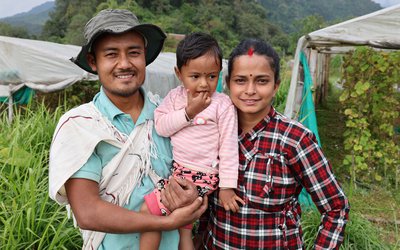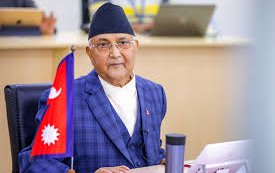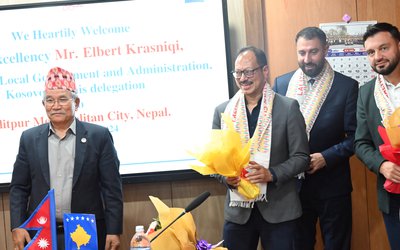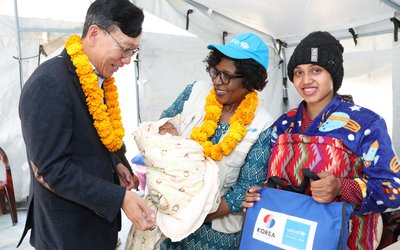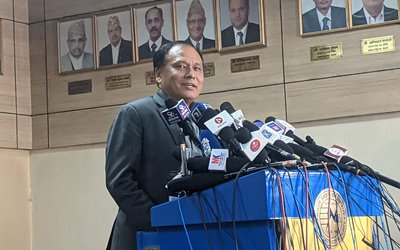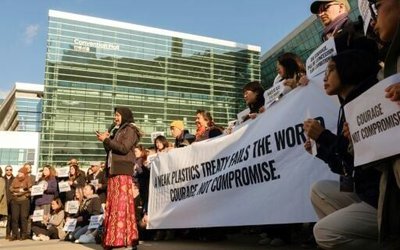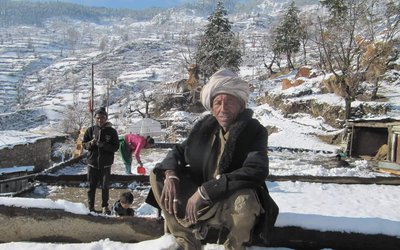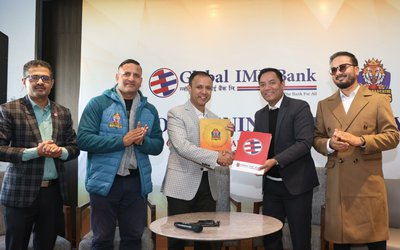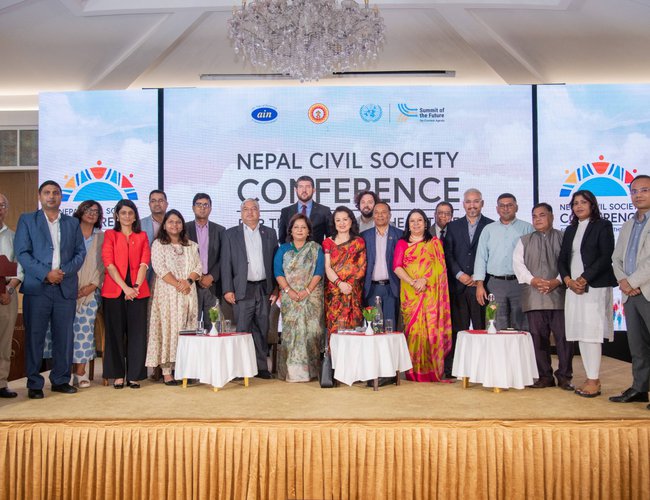
Civil Society Organizations in Nepal have demanded that the Summit of the Future should result in actionable plans with accountability, equitable resource distribution, and stronger international commitments for peace, inclusion, climate justice, digital transformation and youth empowerment.
The Nepal Civil Society Conference for the Summit of the Future organized by the United Nations Nepal (UN Nepal), NGO Federation of Nepal (NFN) and Association of International NGOs in Nepal (AIN) on 3 September, brought together national and international civil society organizations and those representing women, youths and marginalized groups to discuss how Nepal can better contribute to shape the Summit of the Future and better utilize the Pact of the Future—the outcome document of the Summit of the Future—in the support of realizing Nepal’s development priorities and Sustainable Development Goals (SDGs).
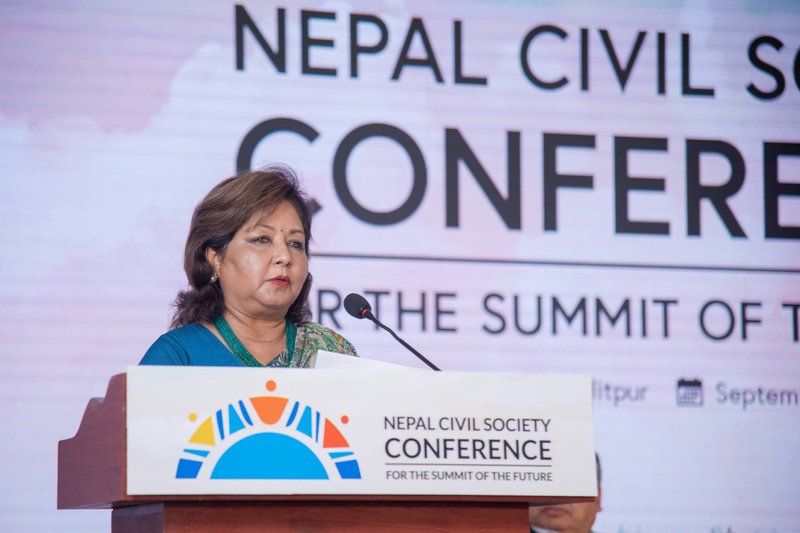
Speaking at the conference, the Chief Guest Minister of Foreign Affairs Dr. Arzu Rana Deuba emphasized on the critical role that civil society organizations (CSOs) can play in taking Nepal’s peace process to the meaningful conclusion, contributing to the implementation of the recently adopted laws on transitional justice. She further emphasized their role in shaping the future, influencing policy reforms and making governance more transparent and inclusive. She further stressed on unified efforts and shared responsibility to address challenges, promote accountability towards multilateral system, strengthen global governance, and foster intergovernmental solidarity for sustainable development, including for LDC graduating countries’ smooth transition and improved development cooperation through the Summit of the Future
At the conference, the members of the civil society also stressed prioritization and inclusion of youth and marginalized communities at all levels of decision-making centering on equity, justice, and diversity.
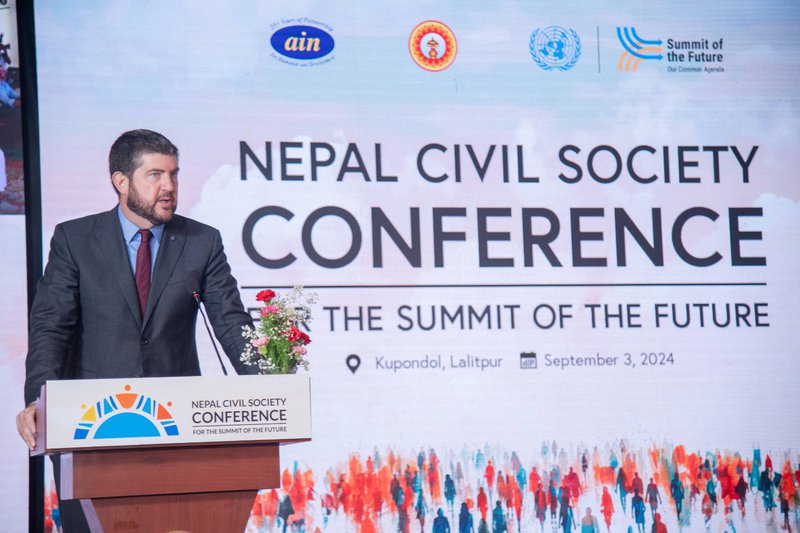
On behalf of the UN Resident Coordinator Hanaa Singer Hamdy, Resident Coordinator a.i. and UNESCO Representative to Nepal,Michael Croft, said “The UN in Nepal is proud to co-host the critical Civil Society Conferences in the lead-up to the Summit of the Future. As a major player in the wheel of development, it is crucial to meaningfully feed civil society perspectives into the pact of the future. Therefore I hope the outcome document of the Nepal CSO conference which delved around consolidating Nepal’s peace process, ensuring inclusive and sustainable development and meaningful youth participation at all levels, will be a place to start the critical multistakeholder coalitions of Member States, civil society, and UN to achieve inclusive sustainable development and lasting peace.
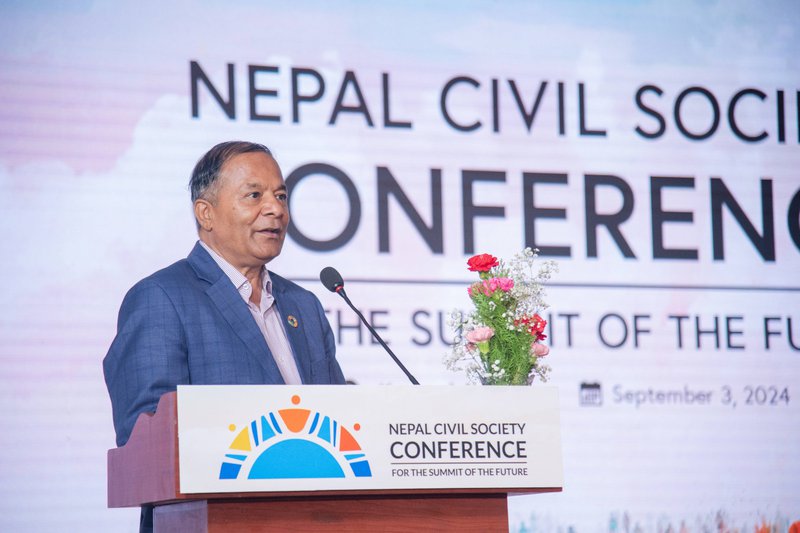
Ram Prasad Subedi, chairperson of NGO Federation of Nepal (NFN) spoke about Nepal's significant challenges in the economic, social, and cultural sectors and highlighted the importance of involving international NGOs in discussions on peace and justice, stressed the need to retain young talent in Nepal for the country's progress. He said, “Countries should invest in peace and development rather than militarism and war.”
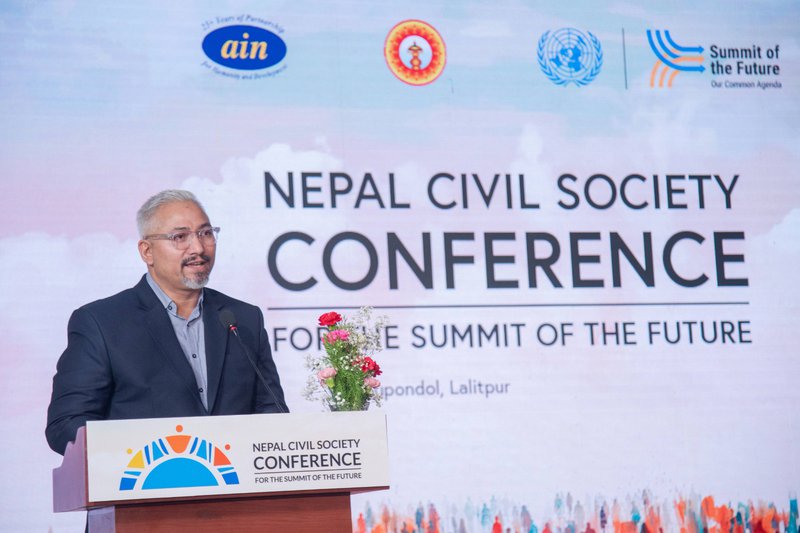
SP Kalaunee, chairperson of AIN, emphasized the importance of timely discussions on envisioning the future. He also cautioned that while LDC graduation will bring changes, transformations won't happen overnight, and efforts must continue to address current challenges, always keeping people at the center of the SDG efforts.
An outcome document on behalf of Civil Society Organizations was also presented at the conference. The document outlines citizen perceptions and demands regarding the SDGs and the upcoming Summit of the Future, emphasizing the need for actionable plans with accountability, equitable resource distribution, and stronger international commitments, particularly from developed countries. It calls for the inclusion of marginalized communities in decision-making, expanded civil liberties, investment in youth, and a greater role for civil society in achieving the SDGs, among others.
The conference, which featured three-panel discussions on Consolidating Nepal’s Peace Process to Promote International Peace and Security, Strengthening Inclusion and Equality for Sustainable Development, and Youth and Digital Transformation for Gender, Social, and Climate Justice, underscored the need for continued collaboration and concrete action to ensure Nepal’s progress towards 2030 SDG targets is inclusive and sustainable. The conference has shaped Nepal’s position at the upcoming Summit of the Future.
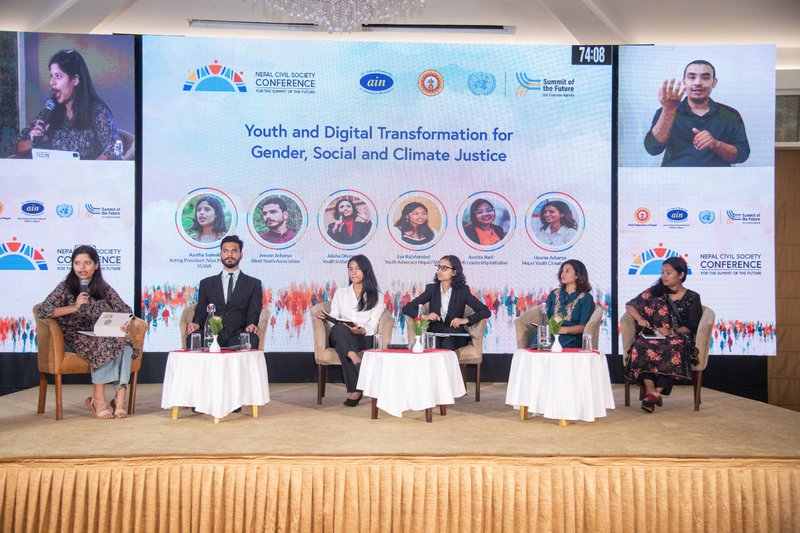
- NEPAL, INDIA ELECTRICITY TRADE Nepal's Advantage
- Dec 02, 2024
- Nepal Received 1 Million Tourists In Last 11 Months
- Dec 02, 2024
- Weather Forecast: Partly Cloudy In Hilly Regions Chances Of Light Snowfall At One Or Two Places Of Karnali Province
- Dec 02, 2024
- Global IME Bank is the main sponsor of Sudurpaschim Royals
- Dec 01, 2024
- Trump Discussed Drug Smuggling, Trade With Canadian PM Trudeau
- Dec 01, 2024

